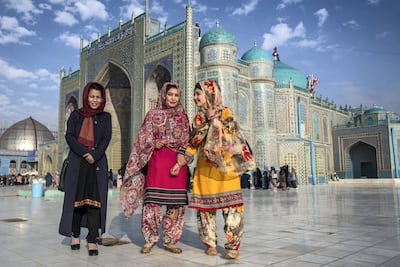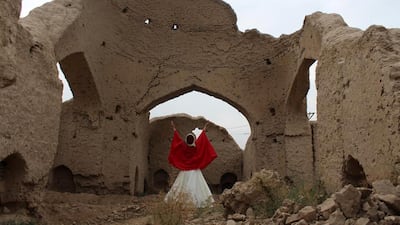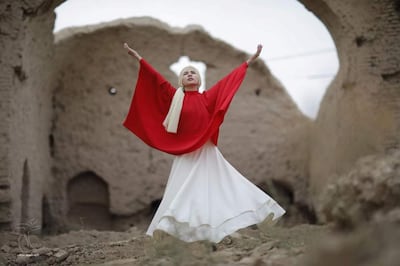Construction work to restore a teaching complex said to once be the home of 13th-century Sufi mystic and poet Rumi is due to commence this week in the northern Afghan city of Balkh, the country's Ministry of Information and Culture told The National.
Afghan authorities had long been planning to rebuild the teaching complex that includes a mosque, monastery and religious school, and is thought to be Rumi’s birthplace.
“From this week onwards, restoration on the complex will start,” said Murtaza Azizi, acting director of tourism at the ministry. Though he said it was not yet clear when the project would be completed.
Balkh city is located an hour’s drive east of the northern Afghan city of Mazar-e-Sharif, home to the famous Blue Mosque, also known as the Shrine of Hazrat Ali.

"The complex was originally constructed using mud and clay and is now in a state of disrepair," explained Azizi. He said the project's budget was not yet publicised, but that the presidential affairs department had taken on the job. Previously, Turkey had offered to renovate the complex, but plans did not come through, he said.
Matiullah Karimi, head of the Information and Culture Centre in Balkh, estimated the costs would be about $7 million, to be covered by the Afghan government, according to media reports.
Who is Rumi?
Jalal al-Din Muhammad Balkhi, widely referred to as Rumi, was born in 1207, probably in the city of Balkh. He fled his home as a child when Mongols captured the region, destroying entire cities in what is today’s northern Afghanistan. His father, Bahauddin Walad, who owned the house and premises, was a prominent theologian of his time.
Rumi later travelled within the Middle East – including Iran, Iraq and Syria – but spent most of his life in Turkey, where he died in 1273. In today's Afghanistan, many people refer to Rumi as "Maulana", meaning "our master".
'The restoration gives me hope'
Sufism and mysticism played an important role in Rumi's Islamic upbringing and continue to be a part of Afghan culture.
Fahima Mirzaie, 24, is a Sufi in Kabul who practises whirling and meditation. She has travelled to Balkh and performed under the ruins of Rumi’s house. It was one of her life’s highlights.
She first came into contact with Sufism at the age of 12, watching dervishes on television, and she's been practising for the past three years. Rumi, she said, is a personal inspiration and a teacher to her.
"Hearing about the restoration of his house gives me hope. I hope one day I will be able to perform not only in its ruins, but in his reconstructed complex."
Afghanistan's heritage spots
The war-torn country boasts plenty of rich cultural heritage spots similar to Rumi's complex, but some of these have become a casualty of the decades of conflict.
Two weeks ago, Afghans commemorated the 20th anniversary of the destruction of the two giant Buddha statues in the country's Bamyan Province, blown up by the Taliban in 2001. Hundreds of people gathered near the ancient site, carrying lanterns as the sun set over the mountains.
The Balkh complex, Azizi explained, holds its cultural value in a secular approach to Islam, not “the Islam the Taliban introduced in Afghanistan”.
"Once lasting peace comes to our country, we are eager to share this heritage with the world," he said. "We hope our tourism industry – and with it, the economy – will grow not only in Balkh, but all over Afghanistan."


